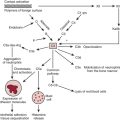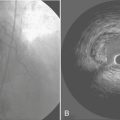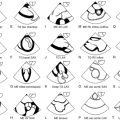
Nursing is a profoundly diverse profession, offering numerous specializations that cater to a wide array of interests and skills. From the fast-paced environment of emergency nursing to the intricate care required in pediatrics, the field provides a variety of paths that healthcare professionals can pursue. Selecting a niche in nursing aligns with personal career goals and meets the needs of different patient demographics, enhancing the overall quality of healthcare services.
The Spectrum of Nursing Specializations
Nursing specializations cover a broad spectrum, each with its unique challenges and rewards. Pediatric nursing, for example, focuses on the care of infants and children, requiring medical knowledge about early-life health issues as well as a gentle touch and the ability to communicate with young patients and their families. On the other end of the age spectrum, geriatric nurses specialize in caring for the elderly, dealing with the complexities of aging and chronic conditions that often affect older adults.
Emergency nursing is another critical area in which nurses must make quick decisions and provide rapid treatment in life-threatening situations. Similarly, surgical nurses play an essential role in operative environments, assisting with surgeries, monitoring patients’ vitals during procedures, and providing postoperative care.
Each specialization requires a specific set of skills and personal attributes, making the field of nursing incredibly diverse and dynamic. Understanding the nuances of each specialization can help prospective nurses determine where they might best fit within the healthcare system.
The Role of Education in Nursing Specializations
Entering any of these specialized fields begins with a solid educational foundation, typically provided by a Bachelor of Science in Nursing (BSN). An online accelerated BSN program is particularly well-suited for those looking to quickly transition into the nursing profession or shift from another nursing role into a specialization. These programs offer a fast-paced curriculum that covers the essential knowledge needed to enter the nursing field, tailored for those who already hold a degree in another area and wish to change their career path.
These programs are essential, as they combine theoretical learning with practical skills, preparing students to meet the demands of various nursing specializations. The courses focus on core nursing competencies while also offering introductions to specialized areas of practice, allowing students to explore different paths within the field before committing to a particular specialization.
Choosing the Right Specialization
Deciding on a nursing specialization can be a pivotal moment in a healthcare professional’s career. It is essential to consider personal interests, the daily realities of the specialty, and the potential for job satisfaction. For instance, those who find fulfillment in helping children may gravitate towards pediatric nursing, while those who thrive in high-stakes, dynamic environments might prefer the intensity of emergency nursing.
The process of selecting a specialization should involve a thorough assessment of one’s strengths and preferences. Engaging with professionals already working in various specialties can provide invaluable insights into the day-to-day challenges and rewards of each field. Networking with experienced nurses can also offer a clearer picture of what to expect and help guide the decision-making process.
Training and Certification Requirements
Training for nursing specializations goes beyond initial nursing education. Each field has specific requirements that may include advanced courses, specialized training programs, and certification exams. For instance, a nurse wishing to specialize in midwifery must pursue additional credentials that certify their expertise in prenatal and postnatal care, along with labor and delivery.
Certifications in these specialties are typically overseen by national accrediting bodies that make sure the quality and rigor of the training meet the high standards required for specialized practice. These certifications validate a nurse’s skills and help improve their job prospects and potential for higher earnings.
For many nurses, the path to specialization starts during or after completing their BSN. Here, nurses might take elective courses or modules focused on their areas of interest, which can be necessary for deciding which specialty to pursue. Engaging in clinical rotations in specific departments also provides hands-on experience and a deeper understanding of the daily tasks and responsibilities involved in different nursing specialties.
Advancing Your Career Through Specialization
Choosing a specialization can profoundly affect a nurse’s career trajectory. Specialized nurses often have access to higher positions within clinical settings, such as leadership roles or positions that influence policy or direct patient care programs. Specialists also tend to command higher salaries due to the advanced skills and expertise they bring to their roles. For example, a certified nurse anesthetist, one of the highest-paying nursing specialties, requires extensive training but offers significant rewards in terms of both professional recognition and compensation.
The ability to focus on a niche also presents opportunities for nurses to engage in research or educational roles within their specialization. They might lead efforts to improve healthcare practices, develop new patient care protocols, or educate the next generation of nurses in both academic and clinical settings.
The Impact of Specialization on Patient Care
Specializing can lead to better patient outcomes. Nurses trained in specific areas of healthcare are better equipped to recognize and address the particular needs of different patient groups. For instance, oncology nurses bring a depth of knowledge about cancer treatments that can significantly affect patient care quality and outcomes. Their specialized training allows them to administer treatments more effectively, manage side effects, and provide compassionate support to patients and their families during difficult times.
Moreover, specialized nurses contribute to overall healthcare efficiency. They can perform complex procedures and manage specific conditions with a high level of expertise, which reduces errors, improves patient recovery times, and lowers hospital readmission rates. This specialization helps improve patient satisfaction and also contributes to more cost-effective healthcare delivery by minimizing the need for multiple consultations and reducing the risk of complications.
The journey into nursing specialization is marked by education, decision-making, and continuous professional development. For those who choose this path, it offers a chance to deeply engage with a specific area of healthcare, making a significant impact on patient lives and the broader field of medicine.
Aspiring nurses should consider their interests and career goals carefully, explore various specializations through education and experience, and seek out advanced training and certification where necessary. With commitment and dedication, specialization can lead to a rewarding and impactful career in nursing, filled with opportunities for growth, leadership, and personal satisfaction.
Finding one’s niche in healthcare through a nursing specialization is not just about career advancement; it’s about contributing to a field deeply connected to human welfare and community health. Whether through direct patient care, research, or leadership, specialized nurses play a pivotal role in shaping the future of healthcare.






